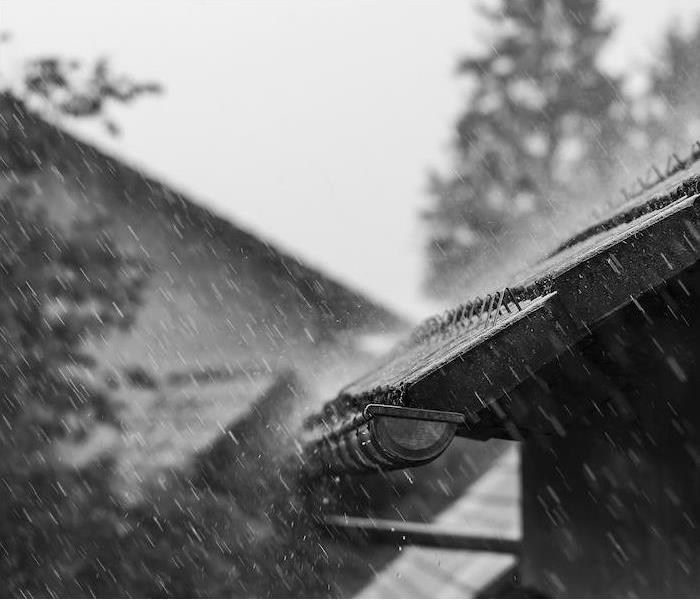Tips for Avoiding Water Damage to Your Home | SERVPRO® of Washington County
5/31/2021 (Permalink)
 SERVPRO of Washington County is your local restoration company. If your home has been damaged by water contact us right away.
SERVPRO of Washington County is your local restoration company. If your home has been damaged by water contact us right away.
Sometimes trying to avoid water damage at home is a bit like playing poker. You may try to bluff Mother Nature and say your roof will weather another season of heavy rains or tropical storms, but deep down you know last year put the nail in its proverbial coffin and it won’t survive another heavy storm.
You might put all your chips on the table one year and go for big repairs needed to repair that same roof, only for a water heater to break out the royal flush and burst on you, sending you into a whirl of damaged items and furniture, not to mention potential mold and mildew issues.
Water damage is one of the most common major issues homeowners face. In fact, it was the second most claimed insurance category for homeowners in a recent five-year study. But there are some things you as a homeowner can do to prevent, or at least inhibit, water damage.
Outside Your Home
Clean downspouts and gutters. Making sure water has somewhere to go without backing up under your roof tiles is one of the most reliable ways to prevent damage.
Check your shrubs. Bushes or shrubs can actually grow long enough roots to being to choke out your pipes, so if a shrub is getting big, you may have to look at your options for maintenance or removal.
Disconnect garden hoses in cold months. Water left in hoses can back up into pipes and freeze, causing the dreaded winter pipe burst that no one wants to experience.
Inside Your Home
Check pressure and pipes. Knowing the location of your water main (so you can quickly stop all water flow to the house in an emergency), regulating your home’s water pressure (so pipes don’t get overloaded and leak or burst), and properly maintaining pipes can all be huge money savers, and of course, vice versa—not maintaining your pipes can cost you big bucks.
Check appliances and gadgets. Check and replace your washer and refrigerator hoses to make sure they haven’t dried out and become brittle. Keep an eye on water heaters and anything else that connects to running water, and verify connections are good and pipes are in good shape. Also, consider using water detectors—small devices you can get at your local hardware store that will alert you at the presence of leaks or elevated moisture.
Know your costs. One simple way to catch a leak is to notice if you have a higher than usual water bill. If a month’s total jumps off the page at you, take inventory of all the above to see if you’ve got a water problem or if maybe you just had more company this month.
Whatever the causes and effects of your water-related issues may be, we’re here to turn problems into distant memories. If your home has been damaged by one of these or other issues, call or click now to get a local SERVPRO technician on the scene quickly.






 24/7 Emergency Service
24/7 Emergency Service